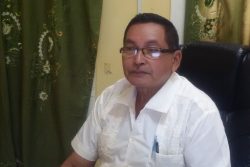Dear Editor,
In July 2010, the Second World Conference on Research Integrity took place in Singapore. On September 22, 2010, the conference released the Singapore Statement, a product of 350 delegates from 50 countries. The conference addressed research misconduct, poor research practices, and the need to advance research integrity collaboratively and internationally.
The Preamble to the Singapore Statement takes the view that the values and benefits of research rely on research integrity. The statement’s principles are honesty, accountability, professional courtesy and fairness, and good stewardship.
The Singapore Statement presents 14 responsibilities with which researchers need to comply. These are integrity; adherence to regulations; research methods; research records; research findings; authorship; publication acknowledgment; peer review; conflict of interest; public communication; reporting irresponsible research practices; responding to irresponsible research practices; research environments; and societal considerations.
Among the 14 responsibilities is that researchers must differentiate professional comments from opinions arising from personal views during public discussions. Director of the Research Ethics and Integrity Program at the Michigan Institute for Clinical and Health Research Professor Nick Steneck noted that there are some scientists who confuse the line between their scientific findings and their opinions (THES, 2010).
He believes that while researchers do have a right to hold and disseminate their opinions, at the same time, they need to evaluate their opinions against societal benefits and risks. Professor Steneck would like to think that the Singapore Statement would help governments, organizations and researchers to be constructive.
The American Association for the Advancement of Science (AAAS) was co-sponsor of the conference. Its intent is to harmonize standards, and a good way to begin such an exercise is to secure an international agreement on research integrity.
The Singapore statement really is a global guide for the responsible conduct of research, and should not be classified as a regulatory document. This document would have strong utility value wherever there is responsible conduct of research, but particularly so in societies where there is a paucity of research. Universities and governments now have the responsibility to establish institutional mechanisms to ensure that there is responsible conduct of research.
Yours faithfully,
Prem Misir








